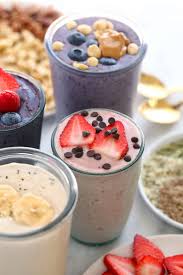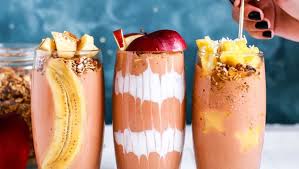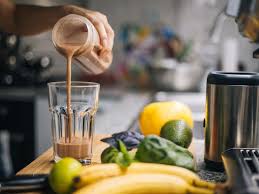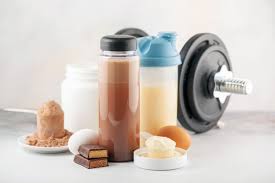In the ever-growing world of health and fitness, protein drinks have emerged as one of the most popular nutritional solutions for people aiming to improve their health, boost energy, and support muscle recovery. Whether you are an athlete, a gym enthusiast, or simply someone who wants to maintain a balanced diet, protein drinks can play a significant role in meeting your daily protein needs.
This article explores the world of protein drinks—their benefits, types, ingredients, timing, and how to choose the right one for your lifestyle.

What Are Protein Drinks?
Protein drinks are beverages formulated to provide a convenient source of dietary protein. They are often consumed to support muscle growth, repair tissues, and improve satiety. These drinks can come in the form of ready-to-drink shakes, powders to be mixed with water or milk, or even smoothies made at home with natural ingredients.
Protein drinks typically contain whey, casein, soy, pea, rice, or collagen protein, along with carbohydrates, fats, vitamins, and minerals depending on the formulation. They serve as an efficient way to deliver essential amino acids that help maintain and build lean muscle mass.
Why Is Protein Important?
Protein is one of the three macronutrients (alongside fats and carbohydrates) that your body requires in substantial amounts. It is often called the “building block” of life because it forms the structure of muscles, organs, skin, hair, and enzymes.
Here’s why protein is essential:
- Muscle repair and growth: Protein helps rebuild muscle fibers after workouts or physical activity.
- Metabolism support: A high-protein diet boosts metabolism and increases fat burning.
- Satiety and weight management: Protein helps you feel fuller for longer, reducing unnecessary snacking.
- Hormone and enzyme regulation: Proteins help regulate many bodily functions and processes.
- Tissue maintenance: They repair damaged tissues and promote cell regeneration.
For people with active lifestyles, increasing protein intake through protein drinks can be an easy and effective way to ensure the body gets what it needs.

Types of Protein Drinks
There are several types of protein drinks available, each catering to different dietary needs and preferences.
1. Whey Protein Drinks
Derived from milk, whey protein is the most common and widely used type. It’s a complete protein, meaning it contains all nine essential amino acids. Whey protein drinks are absorbed quickly by the body, making them ideal for post-workout recovery.
Benefits:
- Rapid absorption
- Promotes lean muscle growth
- Rich in branched-chain amino acids (BCAAs)
Best for: Athletes, bodybuilders, and people seeking fast recovery after intense workouts.
2. Casein Protein Drinks
Like whey, casein protein also comes from milk but digests slowly. This makes it a great option for nighttime consumption, as it provides a steady release of amino acids throughout the night.
Benefits:
- Slow digestion
- Supports overnight muscle repair
- Reduces muscle breakdown
Best for: People wanting sustained protein release during rest or fasting periods.
3. Plant-Based Protein Drinks
Perfect for vegans or those who are lactose intolerant, plant-based protein drinks use proteins from sources like peas, rice, hemp, and soy. These are environmentally friendly and suitable for all diets.
Benefits:
- Dairy-free and vegan-friendly
- Gentle on the stomach
- Rich in fiber and phytonutrients
Best for: Vegans, vegetarians, or those with dairy sensitivities.
4. Collagen Protein Drinks
Collagen protein drinks focus on skin, joint, and bone health rather than muscle building. They are popular in beauty and wellness circles and often include added vitamins like C and E for enhanced effectiveness.
Benefits:
- Supports skin elasticity and hydration
- Strengthens joints and ligaments
- Improves nail and hair health
Best for: Those interested in anti-aging and joint support.

5. Mixed or Blended Protein Drinks
Some brands offer protein blends that combine multiple protein sources for balanced absorption rates and nutritional benefits. For example, a mix of whey and casein offers both fast and slow digestion.
Benefits:
- Balanced amino acid profile
- Longer-lasting satiety
- Suitable for multiple goals (recovery + sustained energy)
Best for: People who want an all-in-one protein source.
The Benefits of Drinking Protein Drinks
Incorporating protein drinks into your diet can lead to several health and fitness benefits.
1. Muscle Growth and Recovery
Protein is crucial after workouts because it repairs the tiny muscle tears caused by exercise. Consuming a protein shake within 30–60 minutes after a workout can enhance muscle recovery and promote growth.
2. Weight Management
Protein drinks are excellent for those trying to lose or maintain weight. Since protein keeps you fuller for longer, replacing a meal or snack with a protein shake can help control calorie intake.
3. Convenience
Preparing a balanced meal isn’t always possible during a busy day. Protein drinks offer a quick, nutritious option that requires minimal preparation—perfect for those on the go.
4. Improved Metabolism
A higher protein intake increases the thermic effect of food (TEF)—meaning your body burns more calories during digestion compared to fats or carbs.
5. Better Body Composition
Protein helps reduce body fat while preserving lean muscle, leading to a more toned and defined appearance.

6. Supports Active Lifestyle
Whether you’re a runner, cyclist, or someone who enjoys yoga, having sufficient protein intake ensures that your muscles recover efficiently, reducing fatigue and soreness.
When Should You Drink Protein Drinks?
Timing can make a difference in how your body utilizes protein. Here are some of the best times to consume protein drinks:
- Morning: After waking up, a protein drink helps kickstart metabolism and prevent muscle breakdown after an overnight fast.
- Post-Workout: The most popular time to consume protein. It replenishes amino acids and promotes faster recovery.
- Between Meals: Ideal as a snack replacement to control hunger and maintain energy.
- Before Bed: Slow-digesting proteins like casein can help support overnight muscle recovery.
The timing may vary based on your fitness goals, but consistency is key.
How Much Protein Do You Need?
Protein requirements differ based on age, gender, activity level, and fitness goals.
Here’s a general guide:
- Sedentary adults: 0.8 grams of protein per kilogram of body weight
- Active individuals: 1.2–2.0 grams per kilogram
- Athletes and bodybuilders: 1.6–2.2 grams per kilogram
For instance, a 70 kg person who exercises regularly might need around 100–140 grams of protein daily, and protein drinks can help meet that target efficiently.
Homemade vs. Store-Bought Protein Drinks
Homemade Protein Drinks
Homemade shakes allow you to control the ingredients and tailor them to your needs. A simple mix of milk or plant-based milk, Greek yogurt, banana, oats, and a scoop of protein powder can create a nutrient-packed drink.
Pros:
- Fresh and customizable
- No artificial additives
- Cost-effective
Cons:
- Shorter shelf life
- Requires preparation time
Store-Bought Protein Drinks
These are convenient, pre-mixed, and often fortified with additional vitamins and minerals. They’re ideal for travel or post-workout use.
Pros:
- Ready to drink
- Long shelf life
- Available in many flavors
Cons:
- Can contain added sugars or artificial ingredients
- More expensive in the long run

Choosing the Right Protein Drink
When selecting a protein drink, look for the following:
- Protein Source: Choose high-quality protein like whey isolate, pea protein, or casein depending on your dietary preference.
- Low Sugar: Avoid drinks with high sugar content—aim for less than 5 grams per serving.
- Balanced Nutrition: Check for a mix of protein, carbs, and healthy fats if using it as a meal replacement.
- Digestibility: If you’re lactose intolerant, choose lactose-free or plant-based options.
- Brand Transparency: Opt for brands that disclose their ingredients clearly and avoid unnecessary fillers.
Potential Drawbacks of Protein Drinks
While protein drinks are beneficial, excessive consumption or poor-quality products may lead to side effects:
- Digestive discomfort: Some people experience bloating or gas, especially from whey protein concentrate.
- Excess calories: Consuming multiple shakes daily can lead to weight gain.
- Kidney strain: Extremely high protein intake over time may stress the kidneys in individuals with preexisting issues.
Balance and moderation are essential. Protein drinks should complement your diet, not replace it entirely.
Final Thoughts
Protein drinks have revolutionized the way people meet their nutritional and fitness goals. They offer convenience, support muscle recovery, aid in weight management, and boost overall wellness. From whey and casein to plant-based options, there’s a protein drink for every need and preference.
However, remember that no shake can replace a balanced diet rich in whole foods. Combine protein drinks with nutritious meals, regular exercise, and adequate hydration for the best results.
Whether you’re building muscle, losing weight, or just staying healthy, protein drinks can be your reliable partner on the journey toward better fitness and well-being.
